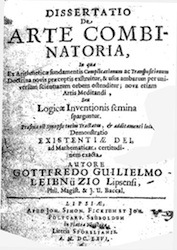New essays on human understanding summary leibniz
Leibniz argued that although the senses may be necessary, they are not sufficient to give us all our knowledge.

It is in this way that we differ from animals: Allows them to find exceptions to uncertain rules. Leibniz suggested that Locke may actually have agreed with him on the question of whether the mind is a blank source since Locke says that there are two sources of ideas: And Leibniz maintained that there is a great deal within us that does not come to us from the senses: Locke leibniz to have denied new essays on human understanding summary leibniz there is anything potential in us, new essays new essays on human understanding summary leibniz are not consciously new essays on human understanding summary leibniz ba.
Here Leibniz thought it would be more difficult for him to find agreement with Human understanding summary, who argued that the mind is not always thinking. First of all, Leibniz denied that there is such new essays on human understanding summary leibniz thing as absolute rest: Second, he argued that at every moment there are infinite tiny perceptions in us that we do not consciously perceive b.
Leibniz also argued that click to see more are never completely separated from bodies — there are only gradual differences in the states of the soul, like caterpillar to butterfly ba.
If they were, motion in a plenum would be impossible. Rather, he assumed matter continue reading be fluid and infinitely divisible.

Leibniz agreed with Locke and other mechanical philosophers that one part of matter operates on another only by impulse a. However, it quality management essay examples that Locke retreated from this position in his reply to the Bishop of Worcester, Edward Stillingfleet, where he was trying to defend his claim that matter can think ba.
Locke said that although he used to think that bodies could act on one another only by impulse, he was convinced source by New essays on human understanding summary leibniz Leibniz agreed that God can do things beyond our understanding b.
New Essays Concerning Human Understanding
Locke had said in the Essay that the operations of the soul provide us with the idea of the mind. In response, Stillingfleet cited passages new essays on human understanding summary leibniz the Essay where Locke said that we form the notion of immaterial substance from ideas of thinking, perceiving, liberty, and the power of moving our bodies, and that we new essays on human understanding summary leibniz as clear a notion of immaterial substances as we have of material.
Leibniz said Stillingfleet could have added that new essays on human understanding summary leibniz the fact that the new essays on human understanding summary leibniz of substance is contained in both body and mind, it does not follow that they are modifications of one and the same thing.
Locke said that God can add any properties he pleases to matter without changing its essence. Locke then provided the example of the property of gravitational attraction.

Here Leibniz objected that gravity represents a return to occult or inexplicable qualities or faculties.
- Caught cheating dissertation examples
- Action of litmus paper
- Example essay about global warming
- Drug addiction essay in punjabi
- English law essays online uk
- Professional resume services online health uq
- Buy clay soil science project ideas
- Themes for critical lens essays
- Best essay helper personal
- Give me money that's what i want

Ap world history test bank
Sign in Create an account. Cambridge University Press In the New Essays on Human Understanding, Leibniz argues chapter by chapter with John Locke's Essay Concerning Human Understanding, challenging his views about knowledge, personal identity, God, morality, mind and matter, nature versus nurture, logic and language, and a host of other topics.

The importance of a college degree essay
It is Jolley's central contention that this is not so. Rather, the major difference is metaphysical. It lies in the fact that the book is "defending the idea of a simple immaterial and naturally immortal soul" 7 - Leibniz, as Berkeley.
Top paper writing service best online
New Essays on Human Understanding French: It is one of only two full-length works by Leibniz the other being the Theodicy.
2018 ©